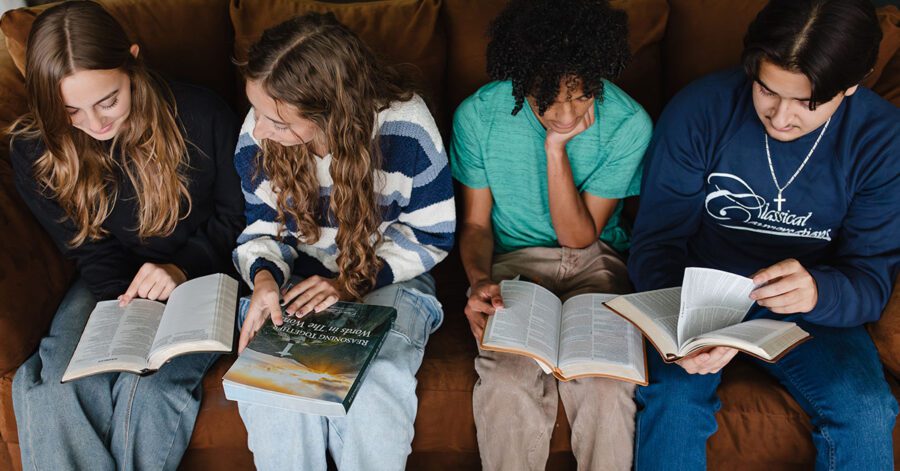Poetry is not merely expressive: it is expression. Poems, that is, do not merely talk about love or passion or emotion: they are the very sound of love, of passion, of emotion.
—Invitation to the Psalms by Jacobson and Jacobson
What Is Classical, Christian Education? An Allegory
Imagine a table.
A table burdened with baskets of bread—hot, still steaming. Crunchy crust and soft inside.
A table with too many cheeses to pronounce, let alone eat at one sitting.
A table of bottles and stemware, of bowls and ladles, of several forks and as many spoons.
A table of food and drink, of color and light, of flavor and aroma.
A table well-lit, well-stocked, and well-attended.
A table where gluten is our friend, and carbs turn into sugars at just the right time.
A table displaying and proclaiming the goodness of him who made it and gave it.
A table welcoming the stranger as well as the invited, both bearing the title “guest.”
Imagine a table lacking no good thing: beautiful in its own right.
But man shall not live by bread alone. As indispensable as physical nourishment is, we need more. Our appetites yearn for more than meat and drink, for more than bread and cheese. Our natures yearn for knowledge and understanding, for something to learn and something to say.
Imagine another table.
A table loaded with libraries of books: ripe for reading. Hardcovers and paperbacks.
A table with too many ideas to discuss, let alone comprehend, at one sitting.
A table of words and sentences, of numbers and equations, of several arts and as many sciences.
A table of trivium and quadrivium, of philosophy and theology, of wisdom and virtue.
A table well-versed, well-spoken, and well-attended.
A table where disagreement is amongst friends, and knowledge turns into understanding at just the right time.
A table displaying and proclaiming the goodness of him who made it and gave it.
A table welcoming the stranger as well as the invited, both bearing the title, “guest.”




